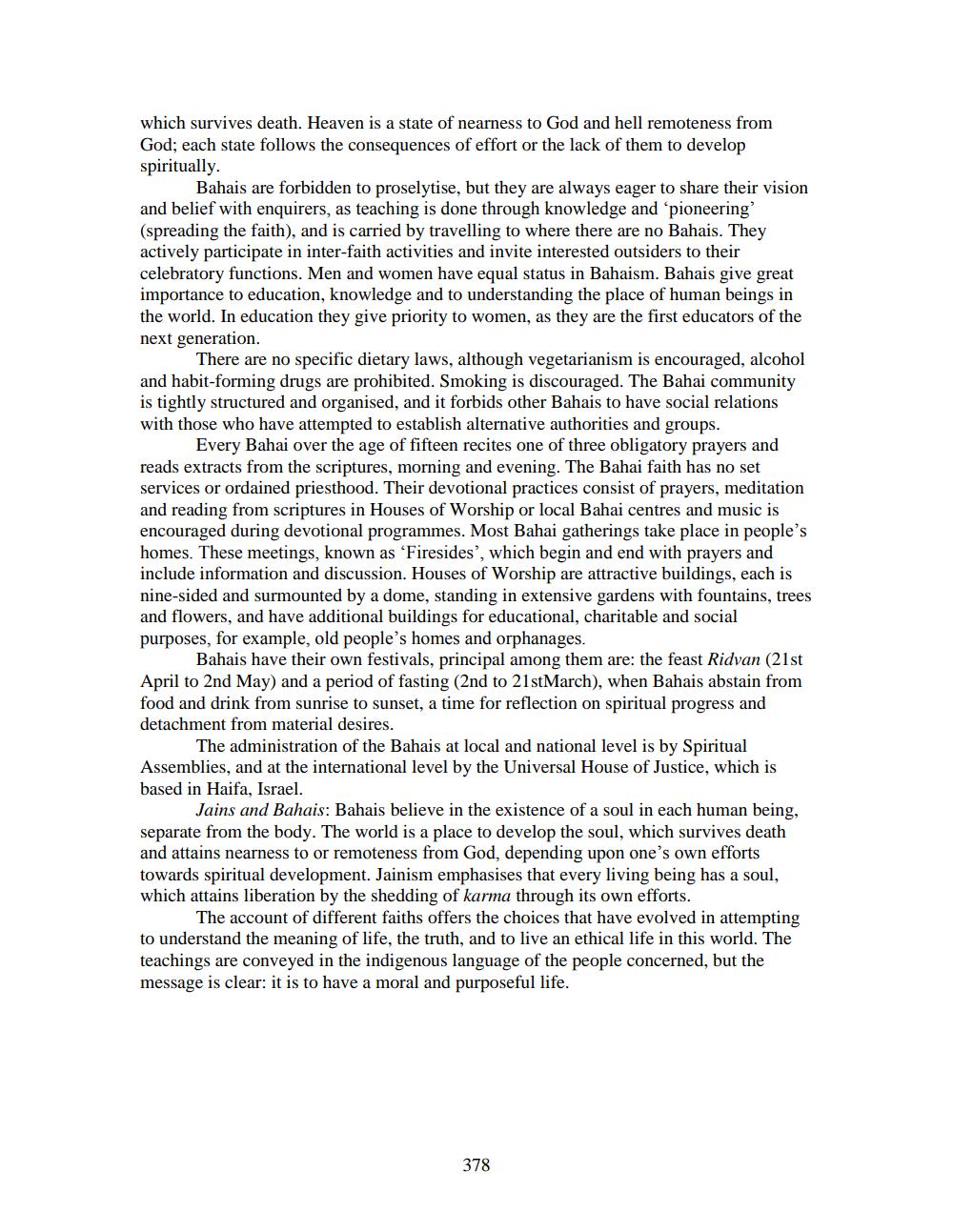________________
which survives death. Heaven is a state of nearness to God and hell remoteness from God; each state follows the consequences of effort or the lack of them to develop spiritually.
Bahais are forbidden to proselytise, but they are always eager to share their vision and belief with enquirers, as teaching is done through knowledge and pioneering' (spreading the faith), and is carried by travelling to where there are no Bahais. They actively participate in inter-faith activities and invite interested outsiders to their celebratory functions. Men and women have equal status in Bahaism. Bahais give great importance to education, knowledge and to understanding the place of human beings in the world. In education they give priority to women, as they are the first educators of the next generation.
There are no specific dietary laws, although vegetarianism is encouraged, alcohol and habit-forming drugs are prohibited. Smoking is discouraged. The Bahai community is tightly structured and organised, and it forbids other Bahais to have social relations with those who have attempted to establish alternative authorities and groups.
Every Bahai over the age of fifteen recites one of three obligatory prayers and reads extracts from the scriptures, morning and evening. The Bahai faith has no set services or ordained priesthood. Their devotional practices consist of prayers, meditation and reading from scriptures in Houses of Worship or local Bahai centres and music is encouraged during devotional programmes. Most Bahai gatherings take place in people's homes. These meetings, known as 'Firesides', which begin and end with prayers and include information and discussion. Houses of Worship are attractive buildings, each is nine-sided and surmounted by a dome, standing in extensive gardens with fountains, trees and flowers, and have additional buildings for educational, charitable and social purposes, for example, old people's homes and orphanages.
Bahais have their own festivals, principal among them are: the feast Ridvan (21st April to 2nd May) and a period of fasting (2nd to 21st March), when Bahais abstain from food and drink from sunrise to sunset, a time for reflection on spiritual progress and detachment from material desires.
The administration of the Bahais at local and national level is by Spiritual Assemblies, and at the international level by the Universal House of Justice, which is based in Haifa, Israel.
Jains and Bahais: Bahais believe in the existence of a soul in each human being, separate from the body. The world is a place to develop the soul, which survives death and attains nearness to or remoteness from God, depending upon one's own efforts towards spiritual development. Jainism emphasises that every living being has a soul, which attains liberation by the shedding of karma through its own efforts.
The account of different faiths offers the choices that have evolved in attempting to understand the meaning of life, the truth, and to live an ethical life in this world. The teachings are conveyed in the indigenous language of the people concerned, but the message is clear: it is to have a moral and purposeful life.
378




